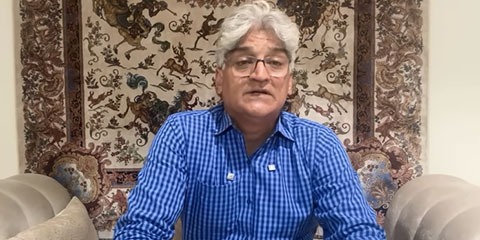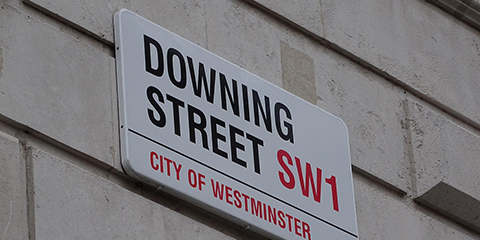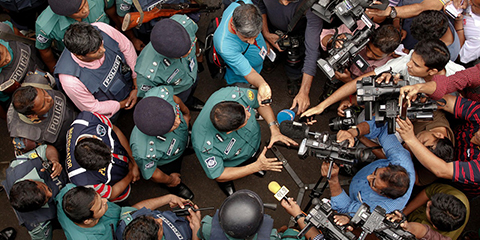DigiMAP calls for end to digital attacks on women journalists
JournalismPakistan.com | Published 4 years ago
Join our WhatsApp channel
ISLAMABAD—On August 12, 2020, dozens of women journalists of Pakistan signed a joint public statement protesting the restrictive and intimidating conditions, especially in the digital domain, aimed at their professional work through coordinated serial harassment and trolling by their detractors. One year on today, their challenges have not been addressed by the government authorities that allow attacks against women in media nor have the conditions improved.
The Digital Media Alliance of Pakistan (DigiMAP), the representative association of independent, non-legacy digital journalism platforms, stands in solidarity with Pakistani women journalists and condemns the continued online harassment and coordinated digital attacks with which women in media are targeted to discredit their public interest journalism and silence their expression.
DigiMAP demands that the government take urgent notice of the concerns raised by women journalists through the joint statements they issued in 2020 and ensure that women journalists are protected against digital attacks and online abuse from various perpetrators, including political party supporters.
In their statement of 2020, the journalists had identified “vicious” social media attacks against women media professionals, including coordinated campaigns to malign journalists, gender-based slurs, threats of sexual and physical violence, and doxing attacks.
The statement had indicated that these online attacks pose a physical security risk to women, undermine their ability to carry out their journalism duties, push them into self-censorship and also endanger the public’s access to credible information. The women journalists had called upon the government to restrain its members from “repeatedly targeting women in the media” and hold perpetrators to account. Another joint statement issued by women journalists in September 2020 had extended this demand to all political parties.
During the past year, despite a hearing of the National Assembly Standing Committee on Human Rights where women journalists provided testimony of the online attacks they faced, the digital abuse and trolling of women journalists has continued unabated. Journalists such as Ailia Zehra and Asma Shirazi, and others were subjected to vile online harassment campaigns during the past six months.
On the first anniversary of the statement, DigiMAP member Voicepk.net co-founder Xari Jalil said the harassment and abuse of women journalists on social media has not only become more frequent it is also more coordinated in recent years. “The abuse may or may not happen because of the reporting – it can happen merely on the basis of women having some kind of voice but the objective of the abuse is to silence women generally,” she said, adding that PECA has been around since some time now but it seems women have not been given any safety under it.
DigiMAP cabinet member and founder of TheReporters, Shazia Mehboob said the online attacks against women journalists are reprehensible, unacceptable, and illegal. “The authorities must take immediate action to ensure that women journalists feel safe on the Internet to gather and publish news,” she said.
Farah Zia, the Director of the Human Rights Commission of Pakistan and a board member of the Alliance for Diversity and Pluralism in Media, said online harassment not only affects the professional work of women journalists, but also it has a negative impact on the public participation of women and their ability to exercise their fundamental human rights. “A diverse range of women’s voices enrich the national discourse, which is why the online expression of women journalists must be safeguarded against digital threats,” she said.
Imaan Zainab Mazari-Hazir, a lawyer who works with the Journalists Defence Committee of the Pakistan Bar Council, said women journalists, unfortunately, do not receive the necessary legal protection against threats and attacks on social media. “The Parliament must ensure that the journalist protection bill is introduced on a priority basis, and the government must ensure it responds to the concerns of women journalists regarding online attacks and threats,” she demanded.
Hyra Basit, Project Manager of the Cyber Harassment Helpline at Digital Rights Foundation, highlighted that online harassment and violence have been on the rise, with an exponential increase in the number of cases in the last few years. “These attacks have increased during the COVID-19 pandemic; where dependence on online spaces has risen, we have seen the impact to be gendered in nature. Women journalists are uniquely vulnerable to such attacks given the intersection of their gender, profession that requires a public profile and critique of state institutions. Furthermore, protections for journalists online, particularly women journalists, should be included in the Protection of Journalists & Media Personnel Bill in order to institutionalize these protections.”
Pakistani media rights watchdog Freedom Network Executive Director Iqbal Khattak said Pakistan is a signatory to the UNESCO declaration on the protection of journalists and international plans that call for proactive support from the state. “Pakistan in 2013 endorsed the United Nations Plan of Action on the Safety of Journalists and the Issue of Impunity, which require it to ensure that all perpetrators targeting women journalists online or offline should be held to account,” he said.
DigiMAP chairman and co-founder of IBC Urdu Sabookh Syed said the alliance believes that the safety of journalists, especially women journalists, is crucial for supporting press freedom and strengthening democracy in Pakistan. “The protection of journalists cannot be completely achieved as long as women journalists are subjected to targeted online attacks and made to feel unsafe and vulnerable in digital spaces,” he said. He added that DigiMAP would continue to support women journalists in their struggle for their digital safety and online freedom of expression in Pakistan.

























